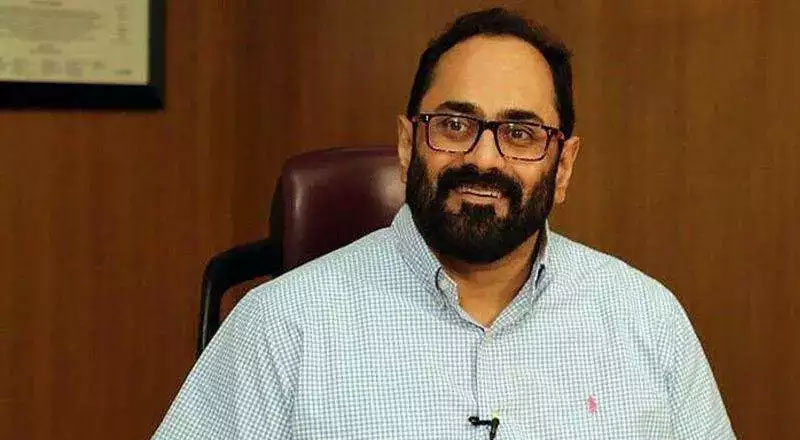The government on Friday launched a simulator to facilitate research and hardware design for quantum computing that is expected to have exponentially higher computing capacity compared to the traditional computers available at present.
Minister of State for Electronics and IT Rajeev Chandrasekhar, while launching the quantum computing simulator QSim, said quantum computing will address the future requirements of computing.
The government on Friday launched a simulator to facilitate research and hardware design for quantum computing that is expected to have exponentially higher computing capacity compared to the traditional computers available at present.
Minister of State for Electronics and IT Rajeev Chandrasekhar said during the launch the quantum computing simulator QSim, said quantum computing will address the future requirements of computing. ”We are coming to the era where the traditional computing power growth through the traditional means of silicon and semiconductor is now drawing to a close.
”We are now going to see the next generation of computing power growth come from a combination of new software, new architectures and overall system redesign and new systems paradigm and that is where quantum computing comes in and is clearly going to be at the cutting edge of future demands of computing power.
Qsim is a gateway for Indians and Indian scientists to take us in that direction,” he said. At present, there is no quantum computer available for commercial deployment and the technology is at development stage.
QSim has been jointly developed by the Indian Institute of Science (IISc), Centre for Development of Advanced Computing and IIT Roorkee, based on IBM’s open source framework.
Users of QSim can access it online where they can learn as well as run quantum computing experiments. ”Qsim is a result of the collaborative effort of research and development which in my way is the way we must grow our technical capabilities. We have a tremendous amount of talent in this country.
”Future of our nation’s technology capability success will be driven to a large extent by how effectively we work in a collaborative manner and pick and assemble best minds from across the country to create and own these technologies,” Chandrasekhar said.
The government has provided an outlay of Rs 8,000 crore for developing quantum computing linked technologies under the National Mission on Quantum Technologies and Applications. The QSim platform will be accessible for students, researchers, startups and industries to help design better hardware for advanced research for quantum computing and stimulate them on super computers Param Shavak and Param Siddhi AI.
”Quantum simulators are still on conventional computers. It is a way to simulate that environment and help people get acquainted with it and allow them to experiment on various aspects. ”It’s a wonderful entry not just within India but it’s a wonderful entry on quantum stimulators when you look across the globe.
This in a way is a very initial step,” Ministry of Electronics and Information Technology (MeitY) Secretary Ajay Prakahs Sawhney said. IISc has rolled out a Masters in Technology in quantum technology to build human resource capability in the country.





